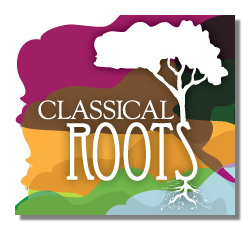
The Internet's Premier Classical Music Source
Related Links
- Latest Reviews
- More Reviews
-
By Composer
-
Collections
DVD & Blu-ray
Books
Concert Reviews
Articles/Interviews
Software
Audio
Search Amazon
Recommended Links
Site News
 Concert Review
Concert Review
Classical Roots and a World Premiere

- John Rosamond Johnson: Lift Ev'ry Voice and Sing 2
- Richard Wagner:
- Wotan's Farewell from "Die Wallkure" 1
- Die Frist ist um from "The Flying Dutchman" 1
- James Lee, III: Sukkot Through Orion's Nebula
- Samuel Barber: Adagio for Strings
- Adolphus Hailstork: Earthrise 2,3
1 Eric Owens, Bass-Baritone
2 Brazel Dennard Chorale/Augustus O. Hill
3 Vanguard Voices
Detroit Symphony Orchestra/Leonard Slatkin
Orchestra Hall, Detroit, Michigan, 9 March 2013
Detroit celebrated its rich African-American history with the 13 th Annual "Classical Roots" concert. With the untimely passing of Maestro James DePriest in February – a trailblazer for African-Americans in the classical music world – Music Director Leonard Slatkin led the orchestra in an unusual but ultimately satisfying program.
Why Wagner was on the program puzzles me somewhat, as he's one of Western music's least unifying figures. It seemed to work though, as both scenes with bass Eric Owens were exceptional. When he first joined the orchestra, Slatkin spoke of the richness that the Detroit Symphony strings possessed. A strike and loss of a concertmistress put that assessment in question, but the players continue to rebuild their sound. In short, the playing was ravishing, employing a fullness of tone that was entirely pleasing. Indeed, every section did a fine job and contributed to some very impressive climaxes. But it was the soft playing that caught the ear in this marvelous acoustic space. Owens himself was less impressive. One of the more prominent African-American opera singers active today, he tended to over sing and get lost in an admittedly great orchestral sound. What could be heard was certainly world class, with excellent diction and a simply wonderful instrument. Is he a Wagner bass? Based on this, I'm inclined to say no, but the audience was extremely appreciative and he certainly earned the warm reception.
Between the Wagner selections on the first half of the program was a world-premiere from James Lee III that showcased an undoubtedly gifted talent. Michigan-born, he studied at the University of Michigan under such greats as William Bolcom. Nor is he a flash in the pan; his works have been increasingly present in the major concert halls. Scored for a huge orchestra, Lee's work showed him to be a master of writing for all sections, with exuberant brass fanfares and some pretty hefty climaxes. Through all that the work was pleasingly and unexpectedly accessible. Lee himself was in attendance and audience reaction was unusually enthused for this fine new piece.
After intermission the orchestra paid tribute to DePriest with a poignant reading of Barber's oft-played Adagio. Slatkin has recorded the piece at least twice and performed it in Detroit at least once, but I am convinced that this is easily one of his finer efforts with the piece. As I noted earlier, the improvement in the DSO strings has been most welcome, and the emotional undercurrent behind the interpretation made this a rendition to remember. Certainly this was leagues ahead of the rather tepid and uninvolved 2011 performance after the strike, and also surpassed the conductor's better played but equally drab version on Telarc. Slatkin's emotional and touching introduction and call for silence afterwards completed a very heartfelt and worthy tribute.
On the other hand, the Hailstork piece failed to make an impression on me. I'm not opposed to new music, but new music that doesn't say much is a problem. The piece has a great message of brotherhood and unity, but musically speaking it falls short of its promise. In this DSO premiere of the work, the orchestra played well and enthusiastically, and Hailstork proved himself just as accessible as Lee, but the tunes weren't memorable and neither was the music. I suspect the piece would have made a stronger impression without the Vanguard Voices, a group I've long considered mediocre, and they regretfully still are. Hailstork calls for a rhythmic agility and sense of "oomph" that this (mostly) white choir was unable to rise to. The Brazel Chorale was far better, and the solos were wonderful, but they were also far smaller and thus dwarfed by the inferiority on display. As a choral singer, it hurts to bash a local choir with ties to the community, but there had to be better choices out there, and it's a shame they weren't used instead.
Taken as a whole though, "Classical Roots" admirably delivered on its promise to celebrate the African-American presence in Detroit. Certainly I have nothing but praise for the increasingly excellent standard of playing that has been on display recently, nor can I do anything but applaud Maestro Slatkin's willingness to step in for this performance. My reservations aside, there was much to enjoy and cherish here, and I encourage and hope for continued support for this series and what it brings to music.
Copyright © 2013, Brian Wigman












